(Psst: The FTC wants me to remind you that this website contains affiliate links. That means if you make a purchase from a link you click on, I might receive a small commission. This does not increase the price you’ll pay for that item nor does it decrease the awesomeness of the item. ~ Daisy)
By the author of The Ultimate Guide to Frugal Living and What to Eat When You’re Broke
As a parent, sometimes I’ve asked my kids to do things they don’t want to do. (Haven’t we all?) The biggest key to their success in the endeavor is their attitude.
Scenario #1:
Me: Kiddo, it’s time to swap your winter clothes for your spring clothes. Please go through your closet, sort through your winter clothes and get rid of the stuff that’s too small or that you don’t want anymore.
Kiddo: I don’t want to! I hate this! It’s not fair!!!
Kiddo goes through the closet, angrily shoving things in a garbage bag without taking a good hard look at things. She sulks, pouts and is otherwise miserable. She gets the job done but makes sure that it is unpleasant for all of us.
Scenario #2:
Me: Kiddo, it’s time to swap your winter clothes for your spring clothes. Please go through your closet, sort through your winter clothes and get rid of the stuff that’s too small or that you don’t want anymore.
Kiddo: Okay – this gives me a chance to see if there’s anything I can re-purpose, too!
Kiddo goes through the closet, eagerly sorting items into piles. She comes up with a good stash of ‘new’ materials for craft projects, a bag of donations, and 2 shirts that were buried at the back that she forgot she had. The job is done and the end result is its own reward.
Switching over to a more frugal lifestyle can be just like the above scenarios. You can embrace it and relish the challenge of it, or you can sulk, pout and be absolutely miserable.
Disengaging from the uncaring financial machine has provided me with a freedom I never had when I was pulling down close to six figures in a corporate game of mousetrap.
The Story Behind My Advent into Cheapskatery
I suffered some great financial losses back in 2010. I lost my house, my car, and my business. We had been living frugally in comparison to many people, but not frugally enough to counteract that personal economic disaster. Looking back, I’m not sure if any amount of frugality could have really made a difference.
It was a devastating blow, and it came right on the heels of the loss of my sweet father. We became even more thrifty of a necessity, and I resented the need to do so every single time I stepped into a mall, purchased groceries, or emptied my bank account on payday to keep the utilities on and a roof over our heads, with nothing extra left over for fun, or even secondary needs. It was a very grim time for our family.
When the depression began to lift, I saw that getting out from under that mountain of debt had actually provided me with a gift of enormous freedom. I realized that my life could take a different turn. I was no longer tied to anything.
And that’s when I began to embrace my cheap side.
I realized that I no longer needed to buy into the system that had been the source of my economic disaster. By supporting them, I wasn’t supporting us. By being as self-sufficient as possible, by cutting my spending, and by not needing “the system”, I was winning. I was becoming truly free. When an entity has nothing to hold over your head, all the options are your own. You can make your decisions based on what is good for you and your family, not on what terrible things might happen to you if you don’t “toe the line.”
Embrace your cheap side
Hard-core frugality is not just making a choice to buy the generic brand of laundry soap instead of a jug of Tide with scent beads. Hard-core frugality is buying the ingredients to make 5 times the amount of laundry soap for half the price of that name-brand detergent, all the while LOVING the fact that Proctor and Gamble are not getting your money.
When you can cross that line between resenting the fact that you have to strictly budget to embracing the fact that by being as frugal as possible, you have a freedom you never dreamed of before, then you have begun to embrace your cheap side.
Being a black belt in frugality takes creativity and an optimistic outlook. It should never be some grim, sad thing that you have to do. It should be something that you choose to do. By finding joy in your non-consumerism, you will be far more successful at it. It becomes a game that you win if you can do something for free that others spend money on. When you feel like you require less, then you are happy with less. This means that you have to spend less time working at things you may not truly enjoy to pay for the things that you never actually needed in the first place. This means that the money that you have goes a lot further
How to Become a Happy Non-Consumer
Be grateful. An “attitude of gratitude” is the most vital part of embracing your cheap side. If you’re happy with what you’ve got, you will find that you “need” far less than you did before. That’s because you aren’t seeking some momentary hit of joyous adrenaline by purchasing something. That rush rarely lasts, and you’re just left with more stuff and less money.
Be creative. How can you make something, save something, or repair something in a totally original way? Embrace the challenge and tap into your creativity – you may just discover that, in your originality, you’ve come up with something far better than the purchased alternative. (We’ve found this to be especially true with fashion accessories, home decor, and birthday parties!)
Give. Don’t let your pursuit of frugality make you stingy. There are always people who are worse off than you. It’s important to give a hand up to those people. If your kids were hungry, or cold, or without shelter, wouldn’t you hope that some kind person would help them? Even at our absolute rock bottom financially, we donated one can of spaghetti sauce and a package of noodles to the food bank every week, which hopefully provided a warm comforting meal for someone who needed it. It isn’t really necessary to debate whether people are truly in need or just milking the system. That is a subject for them and their consciences. Just give. You are responsible for your intentions, not theirs.
Spend your money where it really matters. We opted to move to a very small community into a drafty little cabin in the woods. We made this decision as a family, in order to reduce our monthly output. By getting rid of “city rent” and all of the bills that came with it, we cut our monthly output in half. This means that I can spend a little extra on high-quality meats and dairy, for example. When my daughter needs new glasses, it’s not a problem to pay for them. It means my older daughter can get through college without crippling student loans.
Less need equals more time. Not only does a thrifty lifestyle mean that I can refocus where my money goes. It means that I can refocus where my time goes. I don’t have to work quite as hard on stuff outside the home and can focus on farm and family. I have the time to make hats and scarves instead of purchasing them. I have time to garden and can the harvests. I have time to perform money-saving tasks like cooking from scratch, which goes into a big happy circle of having more money to put towards important things.
Stay home. When you stay home more, you are tempted less. You aren’t thirsty, requiring a beverage. You aren’t hungry, requiring a snack. You aren’t using the car, requiring gas. You aren’t tempted by all the colorful and wonderful things in the stores.
Hang out with like-minded people. It is so much easier to embrace your cheap side if you don’t have people telling you how deprived you are all the time, or berating you for being too cheap to spend $27.85 on a movie ticket, popcorn and a soda pop. Most of my closest friends are thrifty. We swap clothing, we borrow and lend tools, and we cheerfully hang out without spending a dime. Instead of going out to sit in a boutique coffee shop sipping a $6 latte with whipped cream, we sit in the garden at one of our houses sipping a coffee that one of us made, along with a nice fresh blueberry muffin. We enjoy the same conversation we would have had at that coffee shop too. Instead of heading to the mall, we chat on Skype. When your nearest and dearest are on the same page, life is a whole lot easier.
Turn off the TV. People go to school for years to study how to make people want what they don’t need. That great big brainwash box sitting in the living room is a direct pipeline into your brain. From the beautiful homes on the TV programs, the fancy clothes and cars, and the ads for food, recreation and new cars, the whole racket is designed to make you feel you what you have now is inferior to what you could have. Kids are the biggest target of product placement advertising in popular shows. If you watch TV, limit it. Become aware of the scams and discuss them with your kids so that they can easily identify how marketers are attempting to manipulate them. (Confession: we do watch a little bit of TV in our home, and when we do, it’s a big game to identify the hidden ads. While this may sound contrary to the advice to turn the TV off, I believe that some limited viewing coupled with an awareness of the marketing techniques inoculates my children against the sales pitch.)
The Two Week Challenge
Okay….do you want to get started on your journey to frugality, freedom, and fun?
Make a list of the things that you absolutely require over the next two weeks. This, for most of us, is the distance between one paycheck and the next. So, if you need some milk and other supplies, pick that up. (If you are already a prepper, you probably have enough food to get by for several months!)
Then – lock up your bank card, your cash, and your credit cards (if you use them). For the next two weeks, I don’t want you to spend a dime.
(Obviously, the bills that must be paid, must still be paid – I’m not suggesting you stiff your landlord or skip a car payment!)
But for EVERYTHING ELSE…..put it off for two weeks.
Every time you have the urge to spend money, write it down. (You can cheer yourself along by promising to make this purchase when the two weeks are over, if you still want it.) You are going to be AMAZED at the things you spend money on, as well as the amount that you would have spent.
Come up with creative solutions for your “needs” and most likely, you will discover that they were actually “wants.”
So for two weeks you will NOT be purchasing….
- Additional groceries
- Drive-thru coffee
- Take out pizza
- Movie tickets
- New clothes
- Books and magazines
- That adorable pair of shoes – you know, the ones that are ON SALE!!!!
- Gasoline (unless this is absolutely necessary for work – but try to get by on one tank of gas if you aren’t a commuter)
- A candy bar or a pack of gum (easy since you won’t be at a checkout stand – right?)
- Music downloads
- Greeting cards
- Special ingredients for a meal
- A sweater for the dog
- A throw pillow for the sofa
You get the idea. If you cannot go for two weeks without spending money on any of the above, it might be time to take a critical look at how you’re living your life. What will you do if you lose your job? If the economy gets worse? If all of your money goes to keep a roof over your head and you have nothing left for discretionary spending, it’s going to be far worse to have that lifestyle forced on you by circumstances.
At the end of the two weeks, take a look at your handy-dandy notebook and tally up the money you would normally have spent. Are you surprised?
*******
To switch over to a frugal lifestyle successfully, you really have to want to do it. If you’re constantly bemoaning what you don’t have, you’ll be miserable. If you are resentful that you can’t have “stuff” then you won’t stick to your frugal plan. The most important thing of all is to switch off your personal “want” button. When you don’t want or need the things that the big corporations are selling, then you are suddenly free of their restrictions. You are no longer a slave to the wages you must earn to pay for the things they tell you that you should have. You don’t have a lifestyle built on expectations, debt, and the never-ending search for happiness bought from a store.
I know that lots of you are already doing all of these things, and more…what are your suggestions for people who are new to the cheap side? How has the art of thrift changed your life and set you free?
About Daisy
Daisy Luther is a coffee-swigging, adventure-seeking, globe-trotting blogger. She is the founder and publisher of three websites. 1) The Organic Prepper, which is about current events, preparedness, self-reliance, and the pursuit of liberty; 2) The Frugalite, a website with thrifty tips and solutions to help people get a handle on their personal finances without feeling deprived; and 3) PreppersDailyNews.com, an aggregate site where you can find links to all the most important news for those who wish to be prepared. Her work is widely republished across alternative media and she has appeared in many interviews.
Daisy is the best-selling author of 5 traditionally published books, 12 self-published books, and runs a small digital publishing company with PDF guides, printables, and courses at SelfRelianceand Survival.com You can find her on Facebook, Pinterest, Gab, MeWe, Parler, Instagram, and Twitter.
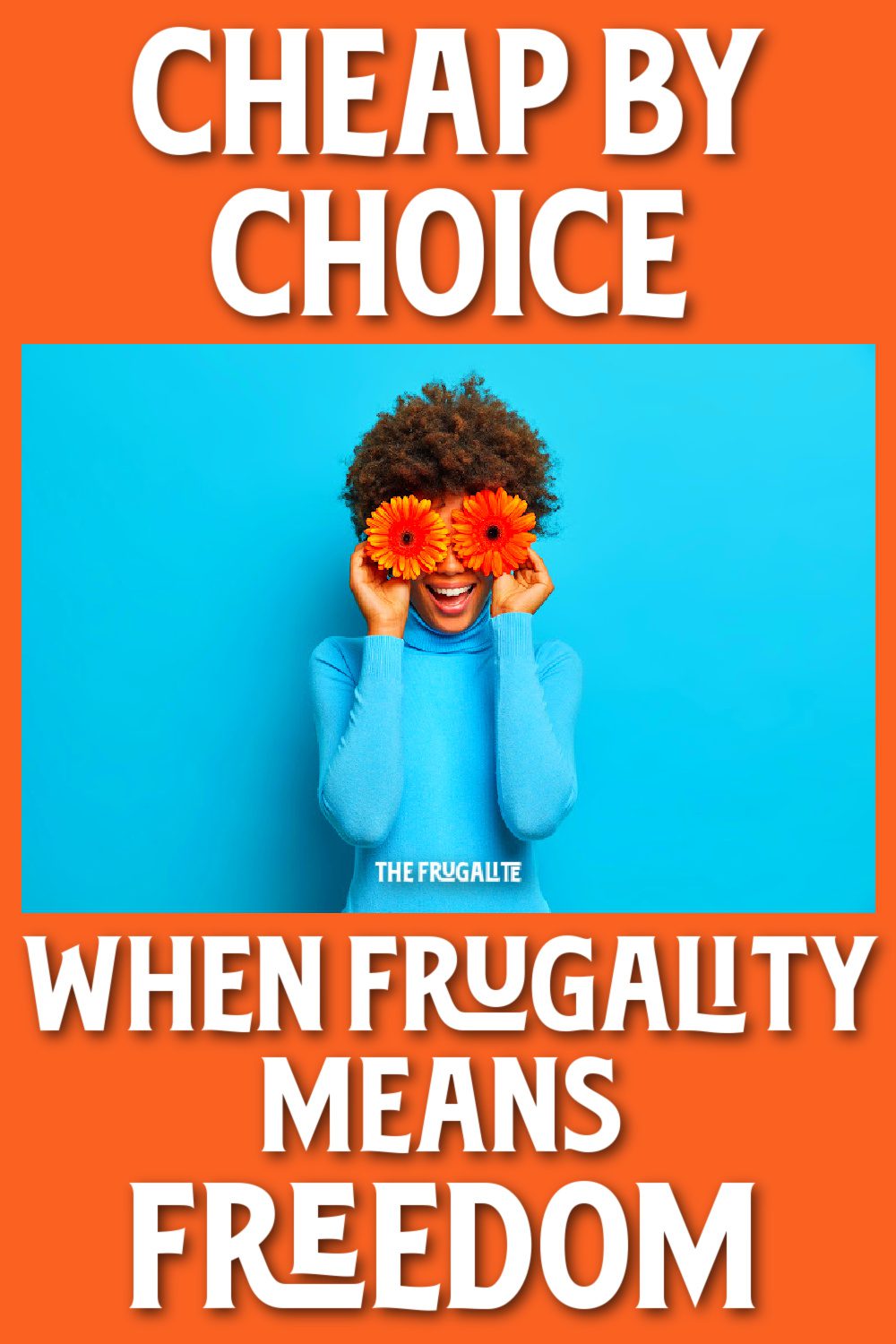





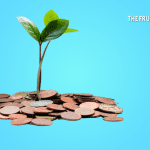
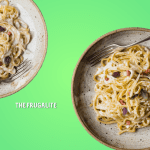
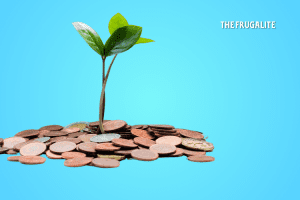


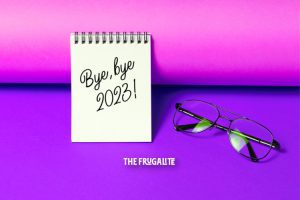

6 thoughts on “Cheap by Choice: When Frugality Means Freedom”
Frugality is much more than what not to spend money on. It’s also very much about how to prevent losses from such disasters as scams, identity theft, subscription rackets made as difficult as possible to cancel, how to pay for online purchases in the safest way possible, and how to cut your losses in case your best precautions prove insufficient.
While sellers of RFID-blocking wallets are prominent with their ads, that risk is not how the majority of such charge card data thefts take place. While I keep my charge cards inside a homemade folder that I lined with electrically conductive tape to block nearby skimmers, the more frequent problem/risk comes from illegal skimmers plugged into payment devices in such places as gas stations, department stores, etc. If you use a debit card to make payment in such places and your data gets stolen, your chances of ever getting lost money back are poor at best. So always use a credit card for such purchases where your loss recovery prospects are vastly better. That same difference holds true for online purchases as well.
Using cash avoids that data theft issue completely — but with the looming threat of all-digital money via “Biden bucks” to replace cash and make cash worthless, the art of preventing financial loss may change radically. When government has the ability to digitally dip into your funds long distance in a few seconds for tax purposes — and make mistakes — your options for any recourse look very murky. The war against alternatives to government-controlled digital money has already begun. The SEC is investigating ways to “regulate” cryptocurrencies the government doesn’t control — in order to make such competitive “threats” undesirable. Communist China has already banned all cryptos their government didn’t create. I expect there will arise some more barter activity but with the nationwide shift to online purchasing, I don’t see how barter can address that.
Another protection against theft of your charge card data is to use the free services of privacy.com which can generate substitute charge card numbers for you to use. It gives you the choice of one or multiple times usage of your charge card’s substitute number. It also lets you choose whether to use only one substitute number for one, or many, sellers, OR multiple substitute numbers — one for each different seller. That gives you much better control over whether you want a seller to draw on your funds one time only, or some number of multiple times that you choose. And if a scammer obtains that substitute data number … it will be useless for use by anyone else.
But … how the art of more safely using charge cards may either change or be flat out prohibited if/when government issued digital money becomes the only monopoly money allowed … is unclear.
–Lewis
Cash isn’t going away.. At first I thought I might find all these “red meat”, crazy posterior articles then figured a waste of my time.
Though I do agree with being very prudent when using a debit card – credit cards have the greatest protection and while your financial institution may say “we’ve go you covered”, they are under no banking laws to do so. We all pay higher prices for using credit cards and the points/rewards/cash back of credit cards would be banned if I had my way.
I delineate between cheap and frugal – cheap is stealing sugar packets at a restaurant. Cheap is forgoing a need (such as medical/dental/vision) to avoid spending any money. Frugal is knowing you need glasses/new glasses for overall health and safety. Cheap is not buying clothes when you need them, frugal is getting them for the best bang for your buck.
You can be frugal OR cheap when you have ample financial means. I’ve yet to meet a cheap person who has a garden but plenty of frugal people that do. Cheap people typically do not donate or otherwise help those less fortunate. Unless you are like Carnegie who sought to atone for his not-so-stellar behavior/choices.
Out of that list…I don’t do any of them. Although I bought a drive thru coffee as a reward for someone flooding my apt, they left their bathtub overflow. All down to my apt, I do make my own laundry soap at 2$ for five gallons, reuse my tin foil, which is why I buy heavy duty. I can use it quite a few times
I also wash my plastic ziplock freezer bags. That’s why I splurge on freezer bags, they last longer and I can get many uses out of each one
I usually make my own mochas and latte’s as well. .. much cheaper
I take showers every two to three days to conserve water and electricity.
I keep my hair short to spend less time in the shower, less shampoo as well.
Plus I buy a Trader Joe’s all body and hair soap. It’s cheaper in the long run.
Might go out to eat once every three months.
Never buy magazines, nor clothing , unless absolutely necessary.
I wear them until they are repurposed into cleaning rags. There is so much I do, it all can’t be typed out here. It’s a lifestyle. One that my family enjoys, we all do our part.
I grew up in extreme poverty. I didn’t really notice it at the time, because we had fun and always found ways to celebrate the holidays. I wasn’t all that good with money when I was young – too much of a tendency to spend it on short term fun, or things that took up space. I’m trying to improve now.
The balance point I’m seeking is to buy quality where it’s important but resist all those small impulse purchases that add up so fast. I don’t use restaurants, the food is better at home. BUT the high quality ingredients can add up so I’m trying to find ways to reduce the cost on that.
Decluttering has been helping in a way, the more I rid myself of, the less I want to fill up the space all over again. However part of this is also a mental battle, not wanting to feel poor again, but not wanting to actually be poor by spending too much! Ha ha. Paying off debt is a good incentive too.
re: “reuse my tin foil, which is why I buy heavy duty. I can use it quite a few times.”
3 Scary Reasons To Ditch Aluminum Foil (And What To Use Instead)
https://thenutritionwatchdog.com/3-scary-reasons-to-ditch-aluminum-foil-and-what-to-use-instead/
Additional Research Sources:
1. Department, P., & 13, N. (2020, November 13). U.S.: Usage of aluminum foil 2020. Retrieved March 10, 2021, from Statista. https://www.statista.com/statistics/275417/us-households-usage-of-aluminum-foil/
2. Liukkonen‐Lilja, Helena, and Sulo Piepponen. “Leaching of aluminium from aluminium dishes and packages.” Food Additives & Contaminants 9.3 (1992): 213-223. https://pubmed.ncbi.nlm.nih.gov/1397396/
3. Stahl, Thorsten, et al. “Migration of aluminum from food contact materials to food—a health risk for consumers? Part I of III: exposure to aluminum, release of aluminum, tolerable weekly intake (TWI), toxicological effects of aluminum, study design, and methods.” Environmental Sciences Europe 29.1 (2017): 19. https://www.ncbi.nlm.nih.gov/pmc/articles/PMC5388732/
4. Dordevic, Dani, et al. “Aluminum contamination of food during culinary preparation: Case study with aluminum foil and consumers’ preferences.” Food science & nutrition 7.10 (2019): 3349-3360. https://www.ncbi.nlm.nih.gov/pmc/articles/PMC6804775/
5. Ghada Bassioni Associated Professor and Head of the Chemistry Department. (2021, February 02). Why you shouldn’t wrap your food in aluminium foil before cooking
it. Retrieved March 10, 2021, from The Conversation https://theconversation.com/why-you-shouldnt-wrap-your-food-in-aluminium-foil-before-cooking-it-57220
6. Liukkonen‐Lilja, Helena, and Sulo Piepponen. “Leaching of aluminium from aluminium dishes and packages.” Food Additives & Contaminants 9.3 (1992): 213-223. https://pubmed.ncbi.nlm.nih.gov/1397396/
7. Sander, Stefan, et al. “Release of aluminium and thallium ions from uncoated food contact materials made of aluminium alloys into food and food simulant.” PLoS One 13.7 (2018): e0200778. https://pubmed.ncbi.nlm.nih.gov/30036389/
8. “Public Health Statement for Aluminum.” ATSDR Database, The Agency For Toxic Substances & Diseases, 2008. https://www.atsdr.cdc.gov/ToxProfiles/tp22-c1-b.pdf
–Lewis
I grew up in a family that were “back to the land” people, who retreated 25 years ahead of those in the 60s. We had almost no money and improvised when we couldn’t buy things. I learned a lot from that experience. I was a stay-at-home Mom in the 60s and 70s and made use of my frugal training. I cooked from scratch, made clothes, and found free or low cost experiences for my daughter. She says she had no idea that we were poor since she got to do so many things. I still think twice before spending money even though I have enough. I still pay credit card bills off every month since I use only for convenience. Having little money never kept us from giving to our church and charity. One year we were shocked to learn that we were among the highest donors to an affluent church (identified by amounts not by names). A man in my husband’s office once asked if we had income other than his salary, which he happily reported to me.